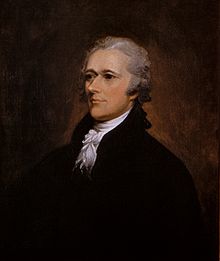January 10 is the 10th day of the year.
Houseplant Appreciation Day
National Bittersweet Chocolate Day
Peculiar People Day According to Holiday Insights.com” “Peculiar People Day is in honor of uniquely different people. Un-ordinary, extraordinary, unusual, strange, odd, uncommon, intriguing, different, abnormal, and quirky…. These are all things that we think of to describe the word “peculiar”. Most of these characteristics can be viewed as good, or not so good. Today is a day to look for the good in your peculiar acquaintances.”
Julius Caesar crossed the Rubicon on this day in 49 BC. According to: Eye Witness To History.com
The crossing of a small stream in northern Italy became one of ancient history’s most pivotal events. From it sprang the Roman Empire and the genesis of modern European culture. Born with unbridled political ambition and unsurpassed oratory skills, Julius Caesar manipulated his way to the position of consul of Rome in 59 BC. After his year of service he was named governor of Gaul where he amassed a personal fortune and exhibited his outstanding military skill in subduing the native Celtic and Germanic tribes. Caesar’s popularity with the people soared, presenting a threat to the power of the Senate and to Pompey, who held power in Rome. Accordingly, the Senate called upon Caesar to resign his command and disband his army or risk being declared an “Enemy of the State”. Pompey was entrusted with enforcing this edict – the foundation for civil war was laid.
It was January 49 BC, Caesar was staying in the northern Italian city of Ravenna and he had a decision to make. Either he acquiesced to the Senate’s command or he moved southward to confront Pompey and plunge the Roman Republic into a bloody civil war. An ancient Roman law forbade any general from crossing the Rubicon River and entering Italy proper with a standing army. To do so was treason. This tiny stream would reveal Caesar’s intentions and mark the point of no return.
1776 – Thomas Paine published his pamphlet Common Sense. It challenged the authority of the British government and the royal monarchy. The plain language that Paine used spoke to the common people of America and was the first work to openly ask for independence from Great Britain.
 Publication of Federalist Paper #29: Concerning the Militia written by Alexander Hamilton on January 10, 1788. Hamilton recommends that each state have a small but well-trained militia. The federal government would establish a standing army to provide uniform training to all members, with approval and funding every two years from the representatives of the people.
Publication of Federalist Paper #29: Concerning the Militia written by Alexander Hamilton on January 10, 1788. Hamilton recommends that each state have a small but well-trained militia. The federal government would establish a standing army to provide uniform training to all members, with approval and funding every two years from the representatives of the people.
Hamilton foresees the Second Amendment: “…if circumstances should at any time oblige the government to form an army of any magnitude that army can never be formidable to the liberties of the people while there is a large body of citizens, little, if at all, inferior to them in discipline and the use of arms, who stand ready to defend their own rights and those of their fellow citizens.”
Anniversary of the Underground Railway. One estimate suggests that by 1850, 100,000 slaves had escaped via the “Railroad”. More than 30,000 went to Canada.
In 1870 John D Rockefeller incorporated Standard Oil.
1901 – The first great Texas oil gusher was discovered at Spindletop in Beaumont, Texas. No oil field in the world had ever been so productive
League of Nations Day 1920. The League of Nations ratified the Treaty of Versailles, officially ending World War I with Germany and held its first meeting in Geneva.
Anniversary of the first session of the General Assembly of the U.N. January 10, 1946
In 1949, RCA introduced the 45 RPM record. It was a great boon to the music market as pre-teens and teens could afford a single record and did not have to buy a more expensive album which may or may not include other songs they wanted.
